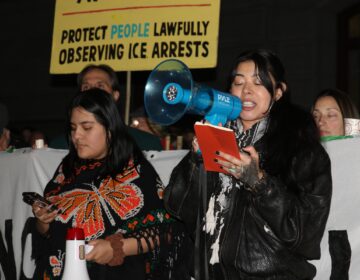Bob Perkins, a legend of jazz radio at WRTI and beyond, dies at 91
Philadelphia jazz legend Bob Perkins, known for his warm voice and unmatched passion for jazz, leaves behind a lasting legacy at 91.
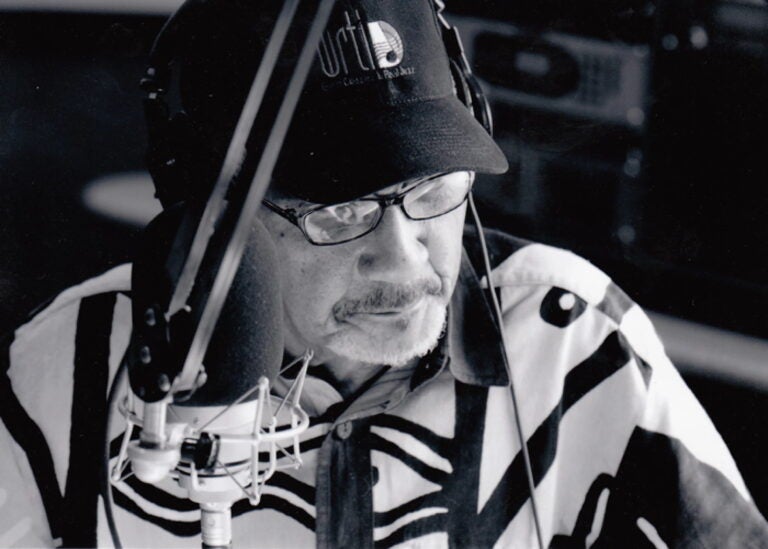
Photo/WRTI
For Bob Perkins, making music was making magic. “That’s what a musician does, to me. When he or she stands up and takes a solo,” he said in 2020. “And it’s all coming out and improvised from the mind to the hand.”
There’s another kind of magic too — the kind woven by a warm voice, a lifetime’s worth of knowledge, and an irresistible passion for jazz. That was BP with the GM.
Perkins died in the early hours of Sunday at Jefferson Abington Hospital, where he had been hospitalized for the last two weeks. He was 91, and lived in Wyncote, PA.
His wife, Dr. Sheila K. Perkins, confirmed his death to WRTI.
Born in Philadelphia, and raised on Dickinson Street in South Philly, Perkins was the youngest of five children — two brothers and two sisters. He actually began his broadcasting career in Detroit in 1964, before moving back to his hometown five years later to work for WDAS. He quickly became a regular on the city’s airwaves.
“One of the things that I thought was somewhat unique about his radio program back then was he never presented it as a jazz program,” saxophonist Larry McKenna, who first heard Perkins on WHYY in the late ‘80s, once told WRTI. (McKenna died in 2023, at 86.) “He played a lot of jazz, but he also mixed in people who were just his favorites.” As McKenna recalled, Perkins would play Doris Day or Dick Haymes alongside the likes of Miles Davis and Stan Getz.
His move to WRTI in 1997 introduced him to a new audience. “Bob Perkins always seemed like one of those voices that was omnipresent,” says bassist Christian McBride. “He carried a lot of history and he was a legacy unto himself, so he could play things and share things with the audience from a vantage point that most DJs don’t have.”
Lovett Hines, artistic director and founder of the music education program of the Philadelphia Clef Club of Jazz & Performing Arts, first met Perkins when he was covering music in print, for the Philadelphia Tribune. “Out of all those writers who were writing about what was happening in the community, I think Bob was the most elegant, the most polished,” Hines said.
On the air, BP brought a similar erudition, rooted in personal experience. “The thing that made Bob’s radio show is that he intimately knew those musicians,” Hines said. “BP has a deep understanding of artists like the Heath brothers (Jimmy, Percy and Albert) because he knew them well: how, when and where they rehearsed; what the mood was like in the recording studio or during a jam session.”
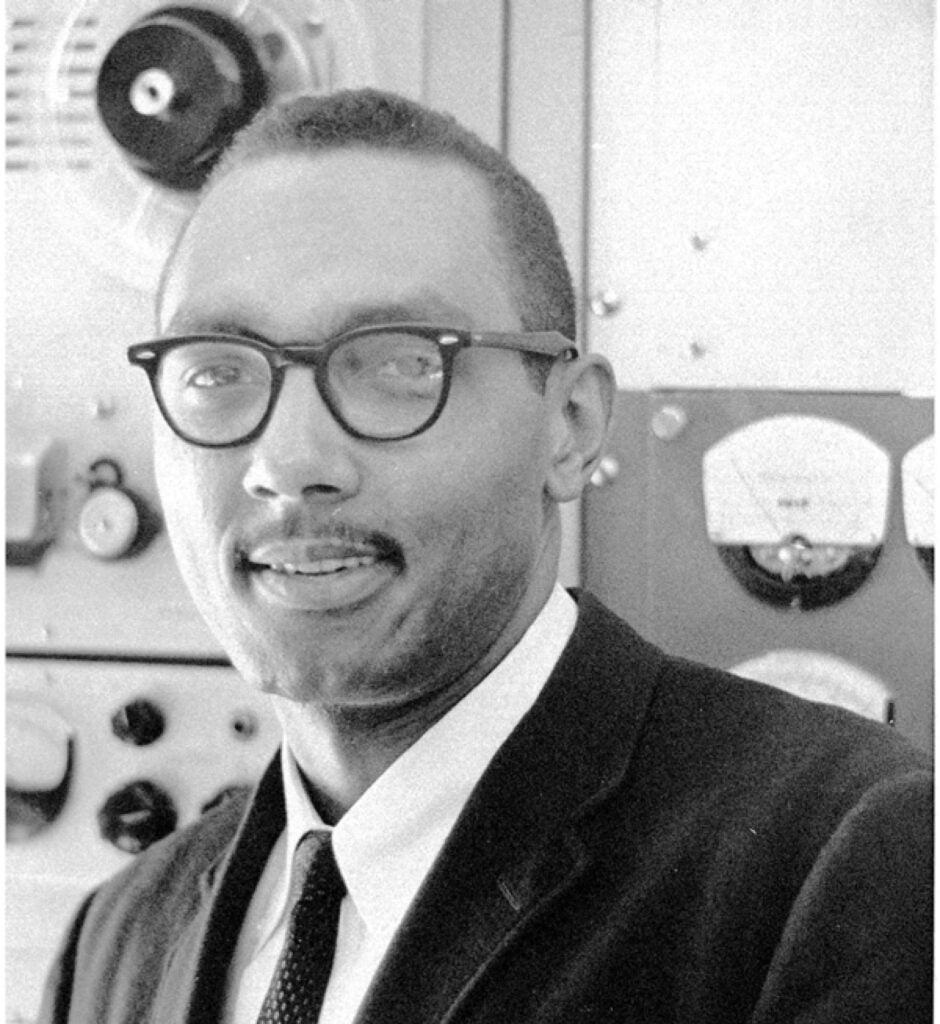
“If you’re going to play any songs by Philadelphians,” he added, “what’s a better DJ to have [than] someone who actually knew the artists and their whole background?”
Philadelphia was, and still is, fertile ground for jazz musicians, and BP followed many budding careers. “Bob had that knack of capturing not only the artists themselves, but the environment that spawned and helped develop the musicians,” explained Hines. “It was a holistic approach to what was happening in the development of music in Philadelphia.”
And all of this flowed into his shows. “What Bob brought to the music community is trust,” Hines said. “Artists [who] work together, especially musicians, form a community. And the way we react and relate to each other is so intimately different than how we react to our audience. Once you understand that you become part of that community.”
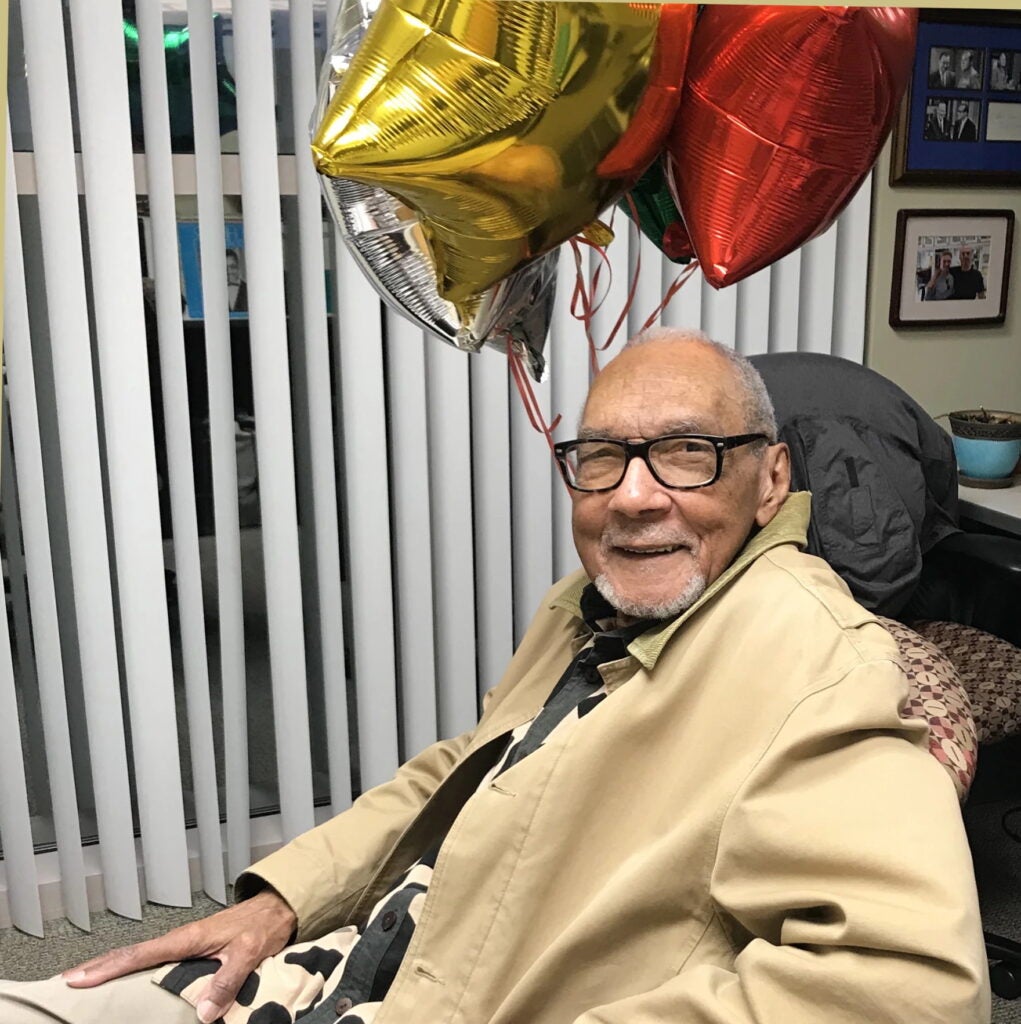
Indeed, BP occupies a unique place in Philadelphia’s jazz scene. “I’m sure there have been generations of musicians who have been touched by his knowledge and his wisdom,” said McBride. “When it comes to this music known as jazz, those are two things you can never have an overabundance of.”
Pianist Orrin Evans first met Perkins as a teenager, when he and a few other young musicians were invited to be interviewed on air. Bob later funded a scholarship at Settlement Music School, paying for Evans’ piano lessons for a year. As thanks, Evans wrote a song in his honor, put a band of musicians together, and played it for him.
“There’s a lot of things I wouldn’t have been exposed to,” Evans said. “I don’t know if I would’ve had those piano lessons that year. I don’t know if I would’ve been checking out WRTI. He led me down the right path, and I wouldn’t be where I am now if it wasn’t for that beginning.”
Joe Block, another accomplished pianist, shares the vantage of a younger generation, which saw Perkins as a tangible connection with the city’s musical heritage. “It’s very important to have people like Bob Perkins who are elders and [have] the experience and wisdom with the music that they can bestow onto people like me that are up and coming,” Block said. “It was inspiring to see such a pure dedication to the music.”
After he retired from his 25-year post as host of Evening Jazz at WRTI in 2022, Perkins embarked on a new venture: Stay Tuned with Bob Perkins, a narrative podcast featuring stories about music, culture, and history — often entwined with the life and times of BP himself. The podcast has released almost a dozen episodes; find it here.
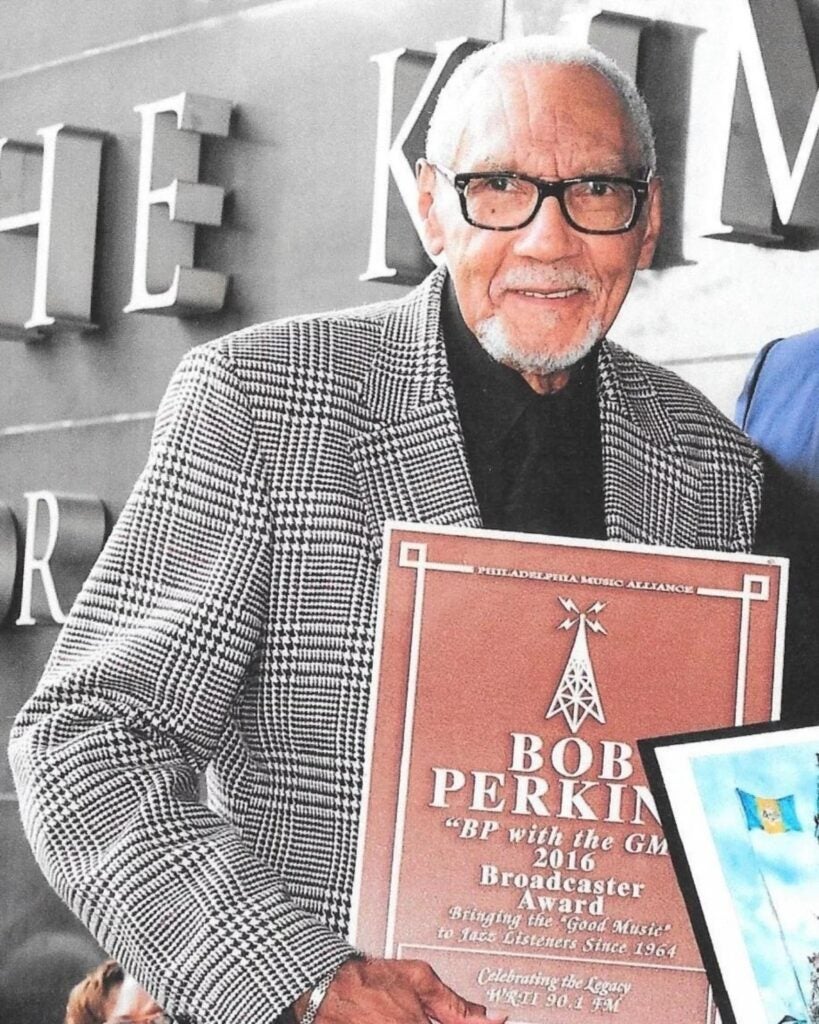
Dr. Sheila Perkins said that during his time in the hospital, Bob remained in good spirits. “He was still very active and busy doing the work he had loved to do — writing, and planning things,” she tells WRTI. “He was still very engaged in conversations with friends and musicians. So he was active up until the last minutes.”
Among the countless musicians touched by BP with the GM is vocalist Denise King, an independent artist with her own record label. Hearing him play her recordings on air, and knowing he was in her corner, was invaluable. “When he played my music, he would always say, ‘She sings better than a Singer sewing machine!’” King recalled. “Having his support meant everything. It was just like a stamp of approval.”
His dedication to music, as well as his ability to connect with musicians and listeners, will be his legacy. “He’s been a rock musically for so many people and for so many musicians and artists who he supported over the years,” King said. “He was an icon, the last of an era [and] the last of a particular type of radio personality.”

Get daily updates from WHYY News!
WHYY is your source for fact-based, in-depth journalism and information. As a nonprofit organization, we rely on financial support from readers like you. Please give today.


